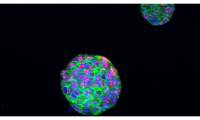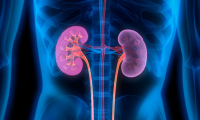-
International consortium identifies biomarkers for cardiovascular disease in diabetes
- Source: https://times.com/news/international-consortium-identifies-biomarkers-for-cardiovascular-disease-in-diabetes/
- 468
- February 15, 2024
-
【EXPERT Q&A】When exporting Class I medical devices, should they be declared for non-medical or medical use?
- Source: drugdu
- 431
- February 15, 2024
-
Electrochemical Sensors with Next-Generation Coating Advances Precision Diagnostics at POC
- Source: https://www.labmedica.com/clinical-chemistry/articles/294800220/electrochemical-sensors-with-next-generation-coating-advances-precision-diagnostics-at-poc.html
- 458
- February 14, 2024
-
FDA grants breakthrough status to J&J’s nipocalimab for HDFN
- Source: https://www.pharmaceutical-technology.com/news/fda-breakthrough-jj-nipocalimab/?cf-view
- 465
- February 14, 2024
-
Innovate UK grants funds for breast cancer therapy project
- Source: https://www.pharmaceutical-technology.com/news/innovate-uk-funds-breast-cancer/?cf-view
- 424
- February 14, 2024
-
NHS launches Pharmacy First to treat seven common conditions
- Source: https://healthmedia.blog.gov.uk/2024/02/01/pharmacy-first-what-you-need-to-know/
- 471
- February 14, 2024
-
MRC Laboratory of Medical Sciences worth £120m opens on ICL campus
- Source: https://pharmatimes.com/news/mrc-laboratory-of-medical-sciences-worth-120m-opens-on-icl-campus/
- 531
- February 14, 2024
-
Everly Health Partners With National Kidney Foundation, Expands Kidney Health Testing Suite
- Source: https://medcitynews.com/2024/02/kidney-disease-home-testing/
- 401
- February 13, 2024
-
Why One Google Cloud Exec Thinks HHS’ New Cybersecurity Guidelines Are A Step In The Right Direction
- Source: https://medcitynews.com/2024/02/google-cloud-hhs-cybersecurity/
- 379
- February 13, 2024
-
MHRA agrees licence change for Pfizer-BioNTech’s Comirnaty vaccine
- Source: https://www.pharmaceutical-technology.com/news/mhra-licence-pfizer-biontech-vaccine/?cf-view
- 363
- February 13, 2024
your submission has already been received.
OK
Subscribe
Please enter a valid Email address!
Submit
The most relevant industry news & insight will be sent to you every two weeks.

















